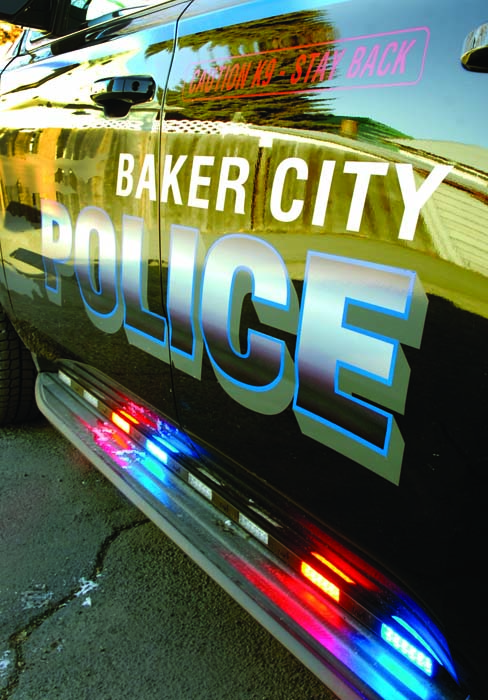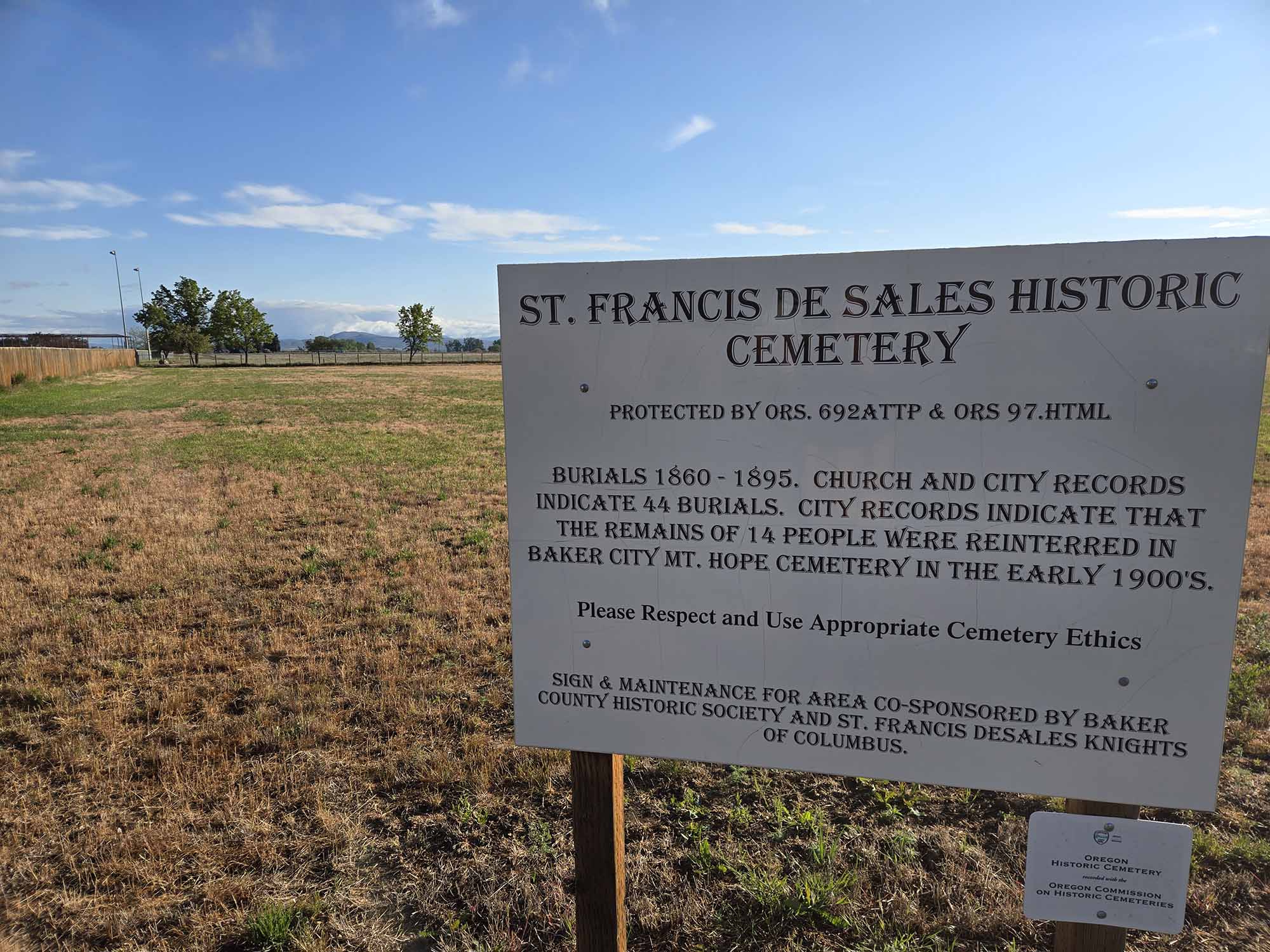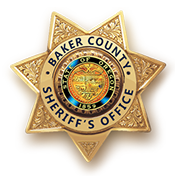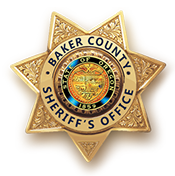Baker City manager says city-only lodging tax, starting July 1, will benefit police, fire departments
Published 11:22 am Monday, April 28, 2025

- Baker City Police car
The Baker City Council’s decision in March to withdraw from its 19-year-old agreement with Baker County to collect and administer the tax currently paid by guests at motels and other lodging businesses will be a financial boost for the city’s police and fire departments, City Manager Barry Murphy said.
The city will begin its own lodging tax system July 1, the first day of the new fiscal year.
The rate will be the same as the current tax — 7% of the rental rate — so the only change for motels, vacation rentals and other lodging outlets within the city limits will be that the city, not the county, collects the tax paid by guests.
(Lodging businesses don’t pay the tax; they can, however, keep up to 5% of the taxes paid by guests for administrative costs.)
Lodging tax revenue reached a record high of $954,000 for the previous fiscal year, which ended June 30, 2024.
Murphy, citing county records showing that about 80% of lodging taxes are paid by guests within the Baker City limits, said the city-only tax could generate around $800,000 in the first fiscal year if collections continue the three-year rising trend.
(The county will continue to collect a lodging tax, also 7%, for unincorporated areas and in Halfway, Sumpter and Unity.)
Under the county lodging tax ordinance, 70% of revenue must be spend for tourism promotion and tourism-related facilities, and 25% for economic development. The county can keep up to 5% to administer the program.
But the city’s ordinance, a draft of which the city council discussed during its April 22 meeting, is different.
As written, the ordinance, like the county’s, would require the city to use 70% of tax revenue for tourism promotion and facilities. That’s also required by state law.
But unlike the county ordinance, which mandates that 25% of taxes go to economic development, Baker City’s ordinance would allow the city to use the remaining 30% for “city services.”
Murphy said he will ask the city council to use some of that 30% to hire a community development coordinator whose duties will include overseeing how the 70% of taxes devoted to tourism will be spent.
Murphy said he will propose that most of the 30% will go to the police and fire departments. Those departments account for about 68% of the city’s $7 million general fund budget for the current fiscal year — the police department slightly less than $3 million, the fire department about $1.8 million.
A projected $900,000 shortfall in the general fund last year prompted the city council in June 2024 to impose a monthly safety fee of $10 added to water/sewer bills for residential customers, and $20 for commercial customers. The fee, which remains in effect, raises about $750,000 per year.
Based on lodging tax collections for the past two fiscal years, the city could potentially have about $240,000 available for city services, including the police and fire department — 30% of $800,000.
Murphy said that having that money available for the general fund, and in particular the police and fire departments, was the factor that most influenced him to suggest the city council withdraw from the agreement with the county.
In other ways, Murphy said, the city’s new lodging tax system will be “comparable” to what the county has used since 2006 because the city, like the county, must comply with the state law requiring that at least 70% of revenue be spent for tourism.
The city, like the county, will have a lodging tax advisory committee to consider requests for money and suggest to the city council, which has the final say, how to spend the dollars. The city will solicit volunteers to serve on the committee once the ordinance is approved.
Murphy said he will suggest that the city council consider hiring tourism promoters outside Baker County to promote the city, and county, in metro areas such as Boise.
Murphy said he believes this “focused” tourism marketing could attract more visitors from those areas.
Murphy said it will be vital that city and county officials collaborate to avoid if possible duplicating tourism promotion campaigns.
“We’re going to have to have those discussions,” he said.
Although the city and county as of July 1 will have separate lodging taxes, Murphy said the two are inextricably linked in terms of tourism promotion.
He noted that there are events and destinations outside the Baker City limits that lure people who stay in lodging establishments within the city and patronize other businesses.
“We certainly will market those as well,” Murphy said.
He said he hopes the county will reciprocate, and acknowledge that Baker City attractions, such as the historic downtown district, bring visitors to town who also spend time, and money, elsewhere in the county.
Disbursement of unspent lodging taxes still uncertain
Along with withdrawing from the 2006 agreement with the county, Murphy has asked county commissioners to give the city $625,000 of unspent lodging taxes collected over the past few years, to help the city start its tourism marketing campaign immediately after the new fiscal year starts July 1, rather than having to wait for tax revenue to start coming in.
The county’s lodging tax advisory committee voted 5-1 on April 17 to recommend commissioners give the city $570,500 of its request.
The three county commissioners — Shane Alderson, Christina Witham and Michelle Kaseberg — will make a final decision on the city’s request.
Murphy’s request letter to the lodging tax committee included a breakdown of how he proposes to spend lodging tax money.
• Baker City Transient Lodging Tax Board ($2,500): this budget line will develop training and materials for members of the City’s new TLT Board.
• Tourism Association Costs ($2,000): the City will need to pay for tourism associations in the region and state for the upcoming year.
• Development of Electronic Marketing Tools ($20,000): this item will focus on website development, social media site creation, and other areas that are needed to stand up Baker City’s program.
• Brand Development ($15,000): Baker City currently does not have a marketing brand that captures the entire City. This item will be used to create a brand, design logos, develop slogans, print and electronic distribution of brand products, etc.
• Digital Content and Asset Creation ($12,000): additional funding for digital content is critical and matches a current budget line item in Baker County’s tourism marketing budget.
• Fulfillment Products ($25,000): the City will need to create a line of products for distribution that include maps, brochures, rack cards, visitor guides, etc.
• Guide Distribution ($4,000): once the fulfillment products are ready, the City will need to distribute them in various locations for maximum benefit.
• Baker City Collaboration Marketing ($25,000): this line item is intended to market the tourist areas that are not included in Baker City Downtown. There are hotels, restaurants, areas that cater to children, and other activities that are not in the downtown area and attract tourists. This funding will help market those areas to build a more complete picture of what Baker City has to offer.
• Co-Operative Marketing ($25,000): this item focuses on teaming up with other tourism partners in the County, Travel Eastern Oregon, and Travel Oregon. It will help augment marketing efforts that focus on events occurring in Baker County or larger geographic areas.
• Baker City Downtown Marketing and Visitor Services ($25,000): this item is to fund the agreement previously approved by the County for BCD visitor services. If this item is funded, Baker City will start a new agreement with BCD that commences on 1 July 2025, so the County will not have to pay anything else to BCD after June 30, 2025.
• Special Events Marketing ($35,000): this item will fund marketing for Baker City’s many special events such as Miner’s Jubilee, the Motorcycle Rally, Car Show, Bicycle event, etc. These events drive Baker City’s activity especially during the summer months, and continuing to market these events is critical.
Event Grants ($35,000): this item will continue funding to help get new events off the ground that bring tourists into Baker City.
• Shrine Game ($10,000): this item continues specific funding for the Shrine Game that the County supported in the past. This is a major event for Baker City and needs to continue receiving funds.
• 1A Basketball Tournament ($10,000): this is another item to continue specific funding that the County has always supported. The 1A Basketball Tournament brings in visitors across the State and generates significant economic activity every year.
• Travel Publication Advertising ($35,000): travel publications are effective methods of advertising that can lead to greater reach for Baker City’s marketing efforts.
• Trade Shows ($2,000): travel to trade shows is another effective tool that matches a current County budget line.
• Wayfinding Physical Products ($120,000): creation of new city signage and district signage (Campbell St Business District, 10th St Business District, Downtown & Central Commercial Districts, etc.). This is an area specifically called out in the 2018 Tourism Strategic Plan that necessitates a lot of effort and funding. Baker City’s intent is to develop a series of signs similar to examples in the Strategic Plan from Pendleton, Tacoma, etc.
• Wayfinding Electronic Products ($30,000): this will update and maintain electronic wayfinding to ensure that all local attractions and businesses are on popular mobile map apps.
• Travel & Training ($8,000): this item will cover any required training and travel necessary to stand up the City’s tourism program.
• Agriculture/Culinary Tourism ($15,000): this is an area specifically called out in the Tourism Strategic Plan that has a lot of potential based on Baker City’s rural location and the preferences of many travelers.
• Arts and Culture Tourism ($15,000): this is another area specifically discussed in the Tourism Strategic Plan that lines up well with Baker City’s strengths.
• Tourism-Related Facilities ($100,000): this item will cover any tourism-related facility needs that Baker City has during the first year.





